Hi Everyone,
This is Jennifer.
I want to bring your attention to a great article which just came out, July 31 2008, in the Minneapolis City Pages, found at http://www.citypages.com/2008-07-30/news/battered-woman-becomes-american-refugee-in-amsterdam/
Please feel free to post a comment in support of my mother.
Thanks,
Jennifer
Battered woman becomes American refugee in Amsterdam
Her husband beat her, so she couldn't let him take custody of their kids
By Beth WaltonPublished on July 30, 2008
It was the first week of the New Year when Holly Collins showed her identification card to the clerk at City Hall in a small township in western Holland. "Asylum for an unlimited time," it read on the front. On the back: "American Citizen."
"Have you seen this? An American asylum seeker!" the shocked clerk yelled to a colleague across the lobby. Dozens of people milling about the building stopped to listen. The clerk shook her head, and held the card to the light. She couldn't believe it: an American refugee.
"That's how it all started," Holly says over the phone as she sits in her home in a city she asked us not to name. It was 2006, and for the next five months, the mother and children dodged questions as rumors circulated the small village streets.
Then, on May 11, 2006, a man from the neighborhood drunkenly approached Holly's oldest daughter. He said he knew who she really was, and that her father, Mark Collins from Crystal, Minnesota, said, "Hello."
The color drained from Jennifer's face as she turned around and walked inside their townhouse. The family's secret was out. Their illicit travel abroad and tumultuous history had finally caught up with them, more than a decade later, some 4,100 miles away.
The family watched from inside as the crazed neighbor started taping up "Missing" posters from the 1990s of Jennifer and her older brother, Zachary. He wildly pointed toward the home and handed out flyers to passersby. He told them a kidnapper was living in the neighborhood, one who was wanted by the FBI.
"She's dangerous," he said. "You better watch out for your kids."
Later, he told investigators that he wanted reward money—that Americans always give out cash for things like that, Holly remembers.
That night Holly and her entire family went to the Dutch authorities. The man was right about one thing: Holly was wanted by the FBI.
"For years I've lived this quiet life, and now all of a sudden I'm pulled back to my past trying to convince someone to believe us," Holly says.
Mark and Holly Collins, both teenagers, were married on December 5, 1982, in Bedford, New Hampshire. Holly was 17 years old and pregnant.
Since the day they'd met, Holly's feelings toward Mark had been a toxic mix. As a child, Holly claims, her mother and her stepfather beat her up. So when she was a teenager and Mark would push her around, it didn't seem as bad. "At least then we were the same size," she says. Their marriage was brief and rocky, pocked with angry separations. In 1987 the couple parted for the last time.
Mark was at his worst when he was drunk, Holly remembers. He beat, threatened, and raped her on numerous occasions. She has hospital records documenting wrist, foot, and head injuries, among others. One doctor confirmed that a three-centimeter scar on her body was consistent with a knife wound.
The documents continue even after the couple separated. "It got to the point where every time he dropped off the kids [from visitation], he'd do something to me," Holly says. "Punch me in the face, push me into the wall."
Medical reports list her accidentally running into the refrigerator door, catching her arm on a shopping cart, tripping over the dog, and falling several times down the stairs. Mark testified that injuries Holly sustained while they were still together—her broken nose, shoulder injury, and black eye—could have occurred after he accidentally rolled over her in bed, or while they were playfully wrestling. By 1989 they were both living in the Twin Cities. Holly obtained an Order for Protection from Hennepin County, and Mark was told to abstain from drinking for the 24 hours prior to visitation with the children.
Reached on the phone, Mark Collins politely declined to comment for this story, but throughout the four-volume file at Hennepin County Family Court, he repeatedly denies claims of child and spousal abuse.
In October 1990, Holly and Mark were divorced. Holly was granted full physical custody of then seven-year-old Zachary and five-year-old Jennifer. Mark was given joint legal custody and visitation rights.
Fearing for their safety, Holly at times defied the court and refused to let the children go to Mark's house. They came home with stories of how their father had hit and kicked them, she remembers. There was at least one incident where Zachary required medical care.
As a university student, Holly lived off public assistance and financial aid after the divorce, working sporadic jobs as a lobbyist, activist, and daycare provider. She mostly considered herself a full-time mother, sewing the children's clothes, baking with them, and helping with art projects; paramount to her existence was ensuring that her children had a better childhood than her own. Every time the kids would tell her a story about how Mark hurt them, she shuddered, thinking of her own past.
When the divorce was finalized, Holly asked the judge if she could move across the country with the kids. She wanted to go back home to Massachusetts. She planned to enroll in courses at Endicott College, live with her family to save money, and work at her father's real estate firm. She would start a new life for herself and the children.
Mark Collins filed a flurry of legal paperwork to keep them from moving. In an affidavit filed in May 1991, he argued that Holly's motion for relocation was "the latest in her relentless quest to keep me from seeing my children and being involved in their lives.... It was made with malice, in bad faith, and solely for harassment. I love my children and try to be with them as often as I can."
Nonetheless, on June 18, 1991, Hennepin County Referee Marybeth Dorn gave Holly permission to move with the kids to New England. Mark was awarded extended visitation rights for holidays and other breaks from school. "It appears that [Holly's] plan to move to the New Hampshire/Massachusetts area is reasonable and will provide benefits to her and the children," Dorn wrote.
Mark didn't accept it. Seven months later, he filed for reversal of custody based on "deliberate visitation denials and a continual attempt to destroy my relationship with the children." He claimed his telephone conversations with Zachary and Jennifer were strained and limited. Holly, he said, wasn't living with her family, attending school, or doing the things she had pledged. He showed the court medical documents in which a doctor wrote that Holly seemed excessively anxious about the children's health.
"She is overly controlling of the children," Mark wrote in an affidavit filed in January 1992. "She will not let them talk to me privately...and she is constantly telling them what to say to me.... The children have often said they were too busy watching a video movie to talk. She has tried to distance me from the children...saying things such as 'I don't want to talk to him, do you?'"
The next month the case was reopened. Mark hadn't seen the children since the previous summer. "It appears that [Holly's] motivation to move to Massachusetts may have been to interfere with the relationship between [Mark] and minor children," Dorn wrote. "The children's emotional and psychological health may be harmed if they continue in the physical care of [Holly], if she continues to alienate them from [Mark] and deny visitation. There also exists concern that [Holly]...dwells on the children's medical status, to their detriment."
A custody hearing was scheduled for the summer. Until then, Holly and the children were to cooperate with the arranged visitation schedule.
Holly knew she wasn't doing what she'd promised the court. She knew things hadn't worked out as planned.
Her dreams of new beginnings were shattered upon the family's arrival in New England. She immediately got into another custody battle over the children—this time with her mother, who Holly alleged was also abusive. Holly was granted a temporary Protective Order in New England, despite her mother and stepfather's denial of the abuse.
Moving beyond the past was harder than Holly had thought. The further she got from Mark, the more he inserted himself into her life, Holly says. Mark would call and tell the kids that he was going to kill their mom if she ever came back. He would list the number of days until their visitation, each time saying Holly had that many left to live.
"One time he called and said that he was in Boston and that he was coming to get us," Jennifer remembers, who was six years old at the time. "I was petrified. I gave my mother the phone and she hung it up in a panic. My father told her that he was at the airport and he was going to kill her. We ran to the car and drove and drove... We kept asking our mother what we were going to do and she just kept telling us not to worry. We slept in the car by the side of the ocean. In the morning my mother decided to call my father in Minnesota. She hung up the phone when he answered. We were so relieved that it was just a threat. We were happy to go home."
All this was especially hard on Zachary. The eight-year-old would bang his head on the floor after getting off the phone with his father, Holly says. He felt the need to be the man of the house and wanted to protect his mother from Mark, but didn't know how.
The family needed counseling, so Holly sought the help of outpatient family therapist Fred Emilianowicz in Salem, Massachusetts. "Mrs. Collins and the children were clearly in crisis when they began treatment and remain in crisis to this day. Their crisis centers around the children's pending 10 day visit with Mr. Collins," Emilianowicz wrote the court on March 26, 1992.
Zachary had told the therapist that he would run away before going back to Minnesota. He told of having recurring nightmares of his father chasing him, and said he believed that if his father caught him, he would be killed. During therapy, the child drew an eight-page depiction of his life.
On paper he penciled his father slamming his mother into a wall while he and Jennifer hid in a nearby closet. The story ends when the children are rescued and taken to safety in New England and Mark is decapitated by a guillotine at a nearby castle. "If I could get rid of Mark this is where I would do it," the child wrote at the bottom of the page.
"His artwork is a reproduction of post-traumatic events commonly observed in abused children," Emilianowicz wrote, warning that it was not in the best interest of the children to see their father. "[I]f the court feels that the children's visit to Minnesota should go forward, then a social worker should be assigned to visit with the children daily, to ensure their safety."
Dr. Philip Reimherr in Lynn, Massachusetts, saw Zachary on referral. After visiting with the boy, the M.D. echoed Emilianowicz's concerns. "It is significant that patient is so afraid of his father, becomes so angry upon learning that he has to visit, and has a return of suicidal thoughts in conjunction with this forced visitation. When asked why he is so afraid of his father, patient became quite sad and quiet before responding that his father 'has been mean, has hit, and has strangled me.'"
The next month, on the day visitation was to commence, Holly filed for an Order for Protection requesting visitation be suspended on the grounds that Mark physically abused the children. Soon after, the court ordered Zachary and Jennifer back to Minnesota for an investigation. Mark was granted supervised visitation during the trip, and Hennepin County child psychologist Susan DeVries began meeting with the children.
"I could provide the children with a much more stable environment," Mark wrote to the court in December. "I live in a home and have worked at the same job for six years, which are both great sources of stability. ...I beg the court to put the children in my care, where they will be removed from these situations, and be given the proper, stable, and loving environment they deserve."
In May, Zachary and Jennifer were sent back to New England to finish school. Holly was given strict instructions that the children must return come summer. Worried about the upcoming hearing, she took them to the Children's Hospital in Boston. There, internationally recognized child abuse expert Dr. Eli Newberger supervised an abuse assessment. In June he wrote the court asking to delay the family's return so he could finish his evaluation. Several weeks into his appraisal, his tentative conclusion was "that these children and their mother have been quite seriously victimized by their father."
Both children had reported abuse to the doctor when their mother wasn't in the room. They said they "did not want to go to Minnesota and see Mark because he hits them and is mean to them." When asked to explain more, Zachary said, "I'm tired of talking about it. You're the 11th person I've had to talk to about it!"
The court denied Newberger's request and in July the children and their mother returned to Minnesota for the hearing. Friends, family, and even a priest came to Holly's defense. Her lawyer took the case pro bono.
Judge Michael J. Davis, who was assigned to the proceedings, discounted Emilianowicz's testimony because he hadn't been in contact with Mark by the time of the trial. Other testimony on Holly's behalf was minimized. One expert was accused of being biased because she didn't know enough about the case and was said to be an advocate for battered women.
In making his decision, Judge Davis put substantial weight on statements from the children's therapist in Minnesota, Dr. David Cline. "[He] is the only clinician involved in this case who has had extensive contact with both children, the parents, and the step-parent," Judge Davis wrote in his January 1993 amended order. While both children told Cline they were abused by their father, Cline told the court they were "skilled accusers" not to be believed.
When around Mark, the children would "turn off these hostile stances and play genuinely and happily with their father.... The children say that they have been physically abused by their father but the story frequently changes. For example, on one occasion...Zachary told me that his father jerked him by the arm and threw him into his room. Later when he was with his father, he said that his father had taken him by the arm and showed him to his room."
Guardian ad litem Michal London, along with other court-appointed custody evaluators, stated that the children seemed at peace in their father's presence. "While with their mother, the children express fear and anxiety over seeing their father. However, upon observation the children quickly become relaxed with Mr. Collins and appear to enjoy the time they spend with him," London reported. Still working at Hennepin County, London said he was unable to comment for this story due to privacy rules within the guardian ad litem system.
Mark's "current behavior does not suggest a violent nature," he wrote. "[I]t is quite difficult to determine how much of the fears expressed by the children are their own or that which they have learned from their mother."
DeVries, the court-appointed child psychologist, also questioned the validity of the children's claims. She, too, declined to comment for this story, but testified at the time that Zachary spoke with a flat affect and didn't appear upset or angry when describing the abuse. Jennifer also seemed rehearsed. It appeared as though Holly had coached them.
From that point on, testimony centered on Holly's parenting, not Mark's. Previously diagnosed with post-traumatic stress disorder and chronic depression, Holly wasn't exactly the most stable mom around. A psychological evaluation done by Dr. Ronald Jorgenson, with the Hennepin County Bureau of Community Corrections, found that Holly had a "great difficulty in trusting anyone, and that she is consistently vigilant in efforts to prevent anyone from causing her some type of harm or doing her injustice." While Jorgenson did not find evidence of major mental illness or maladjustment, the possibility exists that "this individual may experience delusional beliefs from time to time."
DeVries testified that Holly "may suffer from Munchausen syndrome by proxy, a disorder in which a parent invents, induces, or exaggerates medical symptoms in a child," court documents note. In her evaluation, DeVries cited the children's numerous evaluations and visits with clinicians and Holly's anxious behavior regarding the children's heath.
Just days before Christmas, Judge Davis reversed custody of the children, then ages seven and nine. Even though the court did find that Holly had been abused by Mark, neither Child Protective Services nor family court was able to substantiate the children's claims of abuse. "[T]he court finds the record contains sufficient evidence that domestic abuse occurred between the parties," the judgment noted, but "[Holly] suffers from a personality disorder. The personality disorder respondent suffers from includes, but is not limited to, Munchausen syndrome by proxy. Whatever the label, the type or types, of emotional difficulty [Holly] suffers from is extremely resistant to treatment and requires years of long-term psychotherapy.... [T]he court finds that the minor children are at great physical and emotional risk if they remain in custody of [Holly]."
It was 11:30 a.m. on December 22, 1992, and Jennifer Collins was hysterical. Everyone was gathered at the home of Terri Dunham, a friend of Holly's who was considered a neutral party by the court, for the custody transfer. Jennifer was clutching her mother and weeping uncontrollably. "I cannot even imagine anything traumatizing this child more than being carried out to someone that she was so terrified to be with," Dunham recollected in an affidavit to the court. "Zachary Collins was perhaps even more disturbing to see, as he was totally devoid of all emotion. He could not speak, or even move without being prodded; he walked out of my home as if he were a 'zombie', his movements were stiff and stilted and it was as if he was willing himself to even breathe. I, to this day, have nightmares about this—I fear for the children's safety."
It was a day Jennifer Collins says she'll never forget. Her mother gave them their Christmas presents early, including a stuffed animal sprayed with Holly's perfume.
"She picked me up and hugged me and told me that everything would be all right," Jennifer remembers. "At one point I was relieved when my mom told them that she couldn't do it. She said that she couldn't make us go with him. Then Michael London grabbed me and pulled me out of my mother's arms. I wouldn't let go. I remember all these people prying my fingers loose from my mom's dress. When Michael London had me, I kept kicking and screaming, 'Mommy, I want my Mommy.' I told Michael London, 'But he hurts me and he hurts my brother.' I still remember him saying, 'I know,' as he handed me to my father. That was the worst day of my life."
Word quickly spread of Davis's decision. At the Hennepin County Government Center, Holly and her supporters handed out flyers with pictures of Jennifer and Zachary: "Please help protect these children.... The Collins children are still reporting that they are currently being hurt by Mr. Collins! This is an outrage!"
The Star Tribune picked up the story in February 1993 in a rare 2,000-word article that ran above the fold on the front page of the Metro section. "The Collins case is a legal house of mirrors," wrote reporter Kurt Chandler.
Armed with expert testimony and affidavits, Holly had arguments that weren't limited to speculation and activists looking for a cause. Doctors involved with the case came to her defense, too.
Newberger challenged the court, saying that even if the children appear comfortable with their father, that doesn't necessarily mean they are safe. Newberger called the court's presumed diagnosis of Holly "flimsy hypothesizing" and contended he had not seen sufficient evidence to support such accusations.
Emilianowicz wrote to express his "grave concern for Zachary and Jennifer's safety, now that they are in the sole custody of their father.... In my work with Holly Ann and the children, I never had any reason to believe that they were being subjected to unnecessary medical or mental health treatment. Nor did I have any reason to believe that they were being abused or neglected while they were in their mother's care..."
"Zachary and Jennifer are quite fearful of their father. Just because they appear comfortable with him and seek out his affection during a supervised visit does not mean they are not at risk during unsupervised times. Most abusers are skilled manipulators and present extremely well around individuals they want to impress. It is my opinion that Zachary and Jennifer remain at high risk for further abuse, now that they are in sole custody of their father."
The family's longtime pediatrician, Dr. David L. Estrin of Minnetonka, also spoke out on Holly's behalf. "From all of my contacts with the children and their mother, I have seen no evidence for Munchausen syndrome by proxy. I do not feel that Holly Ann's children are at any risk at all when under her unsupervised care," he wrote.
Even Holly's court-ordered psychologist expressed skepticism.
"[M]y understanding of this case is that I am to treat Holly Ann as if she suffers from Munchausen syndrome by proxy although no one has specifically diagnosed Holly Ann as having this disorder," Julia Davis wrote. "Nowhere in the materials I have read, including Family Court Service documents, does anyone clearly diagnose this disorder, nor is any one diagnosis specifically endorsed. This is a serious omission that needs clarification...I assume then that this is my prerogative and responsibility."
The next month Davis, a licensed psychologist and Ph.D., wrote the court with her findings. She was not convinced Munchausen was the correct diagnosis. Holly's problems were "the result of marital abuse or battering. Additionally, she has described a history of childhood abuse by her mother that has been substantiated, at least in part, by court actions in the state of Massachusetts...."
"In my own interactions with professionals in this case, some have indicated to me that they do not believe any abuse has in fact occurred. I find it deeply troubling that professionals should be quick to believe that which has not been established in fact (MSbP) and yet disregard that which has been found to be true by the court (spousal abuse).... I do believe that Holly Ann was repeatedly victimized, first by her family and subsequently by her ex-husband."
On the one-year anniversary of the custody reversal, Holly and her supporters handed out yellow ribbons along with 65 pages of documentation on the case. "It has been one year today since these children were taken hostage by their abusive father, Mark Collins.... The Collins children are still reporting abuse...yet their pleas for help have been ignored by Hennepin County officials," the opening page reads.
Both the Star Tribune and the Minnesota Coalition for Battered Women filed affidavits with the court protesting a gag rule put in place by Hennepin County Judge Charles Porter. (Porter declined to be interviewed for this story.)
"[P]rotesters distributed 'wanted' posters bearing the names of county officials and wore cloth gags over their mouths to symbolize Porter's order," the newspaper reported.
The court didn't waver in its decision, though, and continued its evaluation of Holly's parenting abilities. When it was revealed that she was pregnant and had delivered another child from a different father, Judge Davis, who declined to comment for this story, demanded reports "addressing the fact that Holly kept the pregnancy a secret, and how such actions may affect visitation with Jennifer and Zachary."
Judge Porter, who was then presiding over the case, chimed in: "The Collins children maintained the secret of Holly Ann Collins's pregnancy, without any betrayals to their father, therapist, or other professionals involved in the course of this litigation, functioning as their mother's accomplices in keeping this 'secret.' This secrecy graphically illustrates the control of Holly Ann Collins over the children and their vulnerability to her direction in the formulation of her own agenda."
Holly says the pregnancy wasn't a secret. It was a private matter meant to be left out of the courts. Besides, despite previous findings that she was too sick to care for Zachary and Jennifer, Hennepin County Family Court allowed her full physical custody of the infant.
In August 1993, Porter issued an order reaffirming Mark's custody of Zachary and Jennifer and denying Holly's request for unsupervised visitation. "At some point, this intergenerational family war must stop," the judge wrote. "The emotional safety of the children has been and remains of paramount concern to this court."
In July 1994 the State of Minnesota Court of Appeals upheld Davis's original order. The District Court was correct in ruling that Mark Collins did domestically abuse his wife, but it also granted him custody with appropriate evidence and application of the law. The custody decision would remain unchanged.
"It just didn't make sense," says Holly. "If they thought I was mentally ill, or too traumatized, they should have taken the kids and put them in a safe place. You don't give them to a man who beats."
During supervised visits with their mother the children would sneak her notes pleading for help: "Mommy, please help us. He's hurting us. We are alone. Come get us."
Left with few options, Holly knew she had to do something. "I promised them I would come within two weeks. The children and I had made a sort of appointment. They were waiting for me to come rescue them."
When the phone at their father's house rang one afternoon in June, Jennifer could hardly hide her excitement. "Even though I was terrified of getting caught by my father...I couldn't wait to go back to my mom."
On June 30, around 3:30 p.m., two juveniles left their residence on Cloverdale Avenue in Crystal and didn't return, according to the police report. When their father, Mark Collins, went to look for them, witnesses said they saw the missing children with their mother at the video store. The three hugged, got in her car, and disappeared.
Holly drove for 20 hours that night before finally stopping to cut and dye everyone's hair. She put a dress on her baby son, and smeared the entire family with self-tanner. "I totally changed our identity," she recalls.
At 28 years old, Holly had no real plan. She spent months secretly traveling around North America trying to figure out where she and her three children would go.
After reading about a woman in a similar situation who was allowed refugee status in New Zealand, Collins and her kids boarded a plane. "I was sitting there with my fingers crossed, worried that something would happen and the plane wouldn't take off for some reason," remembers Jennifer, who was nine at the time. "But once it was up, it was freedom. It was safety. Who knew leaving the United States would be a moment of freedom?"
During a layover in the Netherlands, the family was detained for not having appropriate paperwork. When the Dutch authorities threatened to send them back to the United States, Holly begged for mercy. Without even knowing what the word meant, she told them she wanted asylum. "I was just trying to think of every phrase I had heard in the movies. I was just trying to say anything so we could stay. I knew it wasn't going to work, but I had to prove to my kids that I had tried everything."
Holly was granted a trial. For nearly three years the family was shuffled through refugee centers as the slow wheels of justice proceeded. For months, the family lived in a bungalow the size of her former living room in St. Louis Park. They shared the space with three others. Zachary and Jennifer pushed their cots next to their mom's to sleep at night.
They had nothing. Holly had only brought two bags abroad. One was filled with clothing and another with legal documents. "I went from having everything, a house, a car, a boat, a dog, and the kids—what would be considered a perfect American life—and I was suddenly standing in line for food at this refugee center thinking, What am I doing here? I just couldn't understand how I ended up like that."
In 1997 Holly was granted refugee status based on the European Treaty on Human Rights. "There were reports that made clear the ex-husband was violent," wrote her lawyer in the Netherlands, Els Lucas, in an email. "The eldest son had a scar on his skull which was supposedly caused by maltreatment by his father. Holly was and is still so strongly scared even of the idea to be confronted with [Mark]."
When word of the ruling got to Holly, she was speechless. After so many years in limbo, she and the children were going to become members of society again. The Dutch government provided Holly and family with a place to live, and she was allowed to foster abandoned children left at refugee camps. At one point, she says, there were 13 kids in her home. Three of them—orphans from Sierra Leone, Togo, and Gambia—became permanent members of the family. The children were enrolled in school, and slowly things started to seem normal again.
As the years passed, Holly came to love the cluttered village where she sought refuge. Years after her arrival she gave birth to more children of her own. Today, she is a mother of 10. She won't disclose how many are adopted or biologically hers because she doesn't want any of them to think she loves them any less. Holly doesn't work, but spends her time caring for her five young children and volunteering with war orphans.
"I have a dream life right now," she says. "I just can't believe I did it. We ended up safe. I have a normal life as a simple Dutch woman. Everything moves slowly here, but it moves on. Everyone either says I was a hero or a criminal, but I was neither. I was a nice, sweet mom looking out for my kids."
In the rubbish disposal behind Holly's last known Minnesota address, investigators found a letter that Holly had written to those she left behind. "I cannot stand by and let my children suffer any longer," she wrote. "I am aware of the consequences, but the time that I may provide my children with happiness, love, and safety will be worth any penalty I must endure.... I must stay away until the children are old enough to have their voices heard and listened to in the courtroom. If, at anytime, my children ask to return, I assure you that I shall turn myself in."
Fourteen years have passed since that summer, and the Collins children want to come back. "It's our home," says Zachary, now 25. "It's always felt like home. Even though I've spent more than half my life here, and I've gotten used to it, it never really felt like the States did. The States feels like home."
The children say they don't want to return without their mother. As of July, the Netherlands has refused to extradite Holly, despite the active federal and county charges against her. When she and the children disappeared, Holly was charged by the FBI for leaving the state to avoid arrest or prosecution, a charge often used to give authorities jurisdiction for arrest. The offense holds a maximum penalty of five years in prison and a $250,000 fine, but attorney Michael Dees, representing the United States in the federal case, says it is doubtful something like this would go to trial.
Hennepin County District Court charged Holly with one count of deprivation of parental rights, an offense punishable by a maximum of two years in prison and a $4,000 fine. However, under the law in Minnesota, the presumed appropriate sentence would be probation, says Deputy County District Attorney Pat Diamond, who will oversee the proceedings if and when Holly returns.
Mark Collins, among others, is one of several victims in this case, Diamond adds. Mark put a lot of time, energy, and faith into the court system, but he never got the results. "This isn't like tax evasion where you can just mail a check.... What would you mail to Mark Collins to put him where he should have been? He's now had 14 years without contact or at least without custody of these two children, so how do you give that back?"
There is a defense for deprivation of parental rights in Minnesota, Diamond continues. If Holly comes back and the case goes to trial, she will be given the opportunity to show that she genuinely feared for the children's safety. "But she needs to come back and answer." Later, he adds, "Look, we are not going to negotiate with someone who is in a country with a non-extradition treaty, fleeing from a crime. That's just not how we do things."
Holly's lawyer Alan Rosenfeld, national expert on abuse and custody law, says Holly plans to come back and face trial. She wants the evidence exposed, but won't return to the United States until bail stipulations are set to her liking. She still has five minor children, and the three she fled with could be considered witnesses in the case. Holly won't return until it is assured she can have contact with her kids leading up to the trial, Rosenfeld says.
Diamond doubts that would be a problem. "I don't think giving her another month or so with them would make any real difference in bail proceedings. She's had 14 years with those children to tell them what to say."
In the last few weeks, the Collins case has sparked national discussion. Stop FamilyViolence.org launched an email campaign, sending over 3,000 messages in 12 hours to Minnesota lawmakers asking for the charges to be dropped.
The Collins case represents a glaring and common error in the U.S. Family Court system, says Dr. Joyanna Silberg, clinician and executive vice president of the Leadership Council on Child Abuse & Interpersonal Violence. Often it's easier to believe the mother is crazy than to believe a father would hurt the children, even if there is documented abuse.
Silberg is currently working with U.S. House of Representatives majority leader, Congressman Steny Hoyer (D-Maryland), on federal reforms to better protect children from abuse. Hoyer asked Marlene Kaufmann, a lawyer with the Independent Congressional Commission on Security and Cooperation in Europe, to review the case.
"From what I reviewed so far it seems rather peculiar," says Kaufmann. "It appears the court did find that there had been domestic violence, that there was abuse. Holly was awarded the children and then less than a year later, with apparently no major change in circumstances, she's told she's crazy. To me, the proof is in the pudding.... She's raised two beautiful children."
At 25, Zachary is studying psychology at a Dutch university. He's in a fraternity, plays trumpet, and sings in a band. Jennifer, too, is studying psychology. A debater and Model United Nations participant, she has met Kofi Annan, the president of Trinidad and Tobago, and the Queen of the Netherlands.
Every year on June 30 the family celebrates their escape, usually with lobster. "We call it our 'Gotcha Day,'" Jennifer says. "There is so much evidence that they knew what was going on. I told them what was happening, but they didn't listen because I was a child.... I'm 23 years old now. As an adult, you have a much different view. You can stick up for yourself and that's what I'm trying to do."
Subscribe to:
Post Comments (Atom)
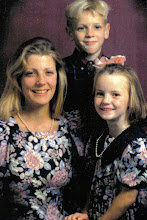


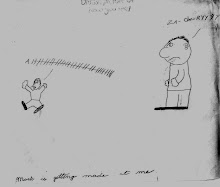
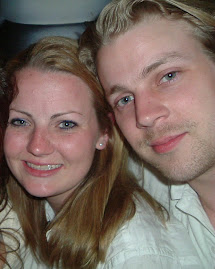
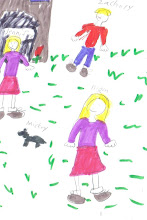
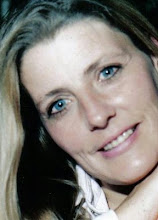
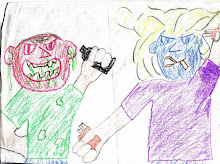



No comments:
Post a Comment